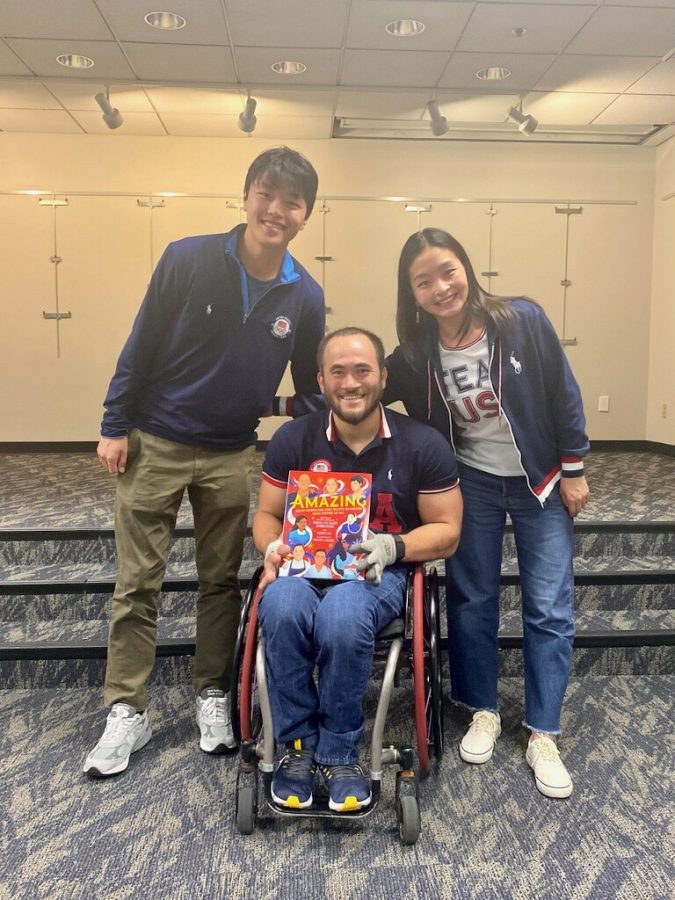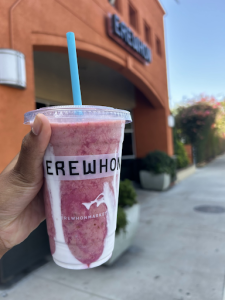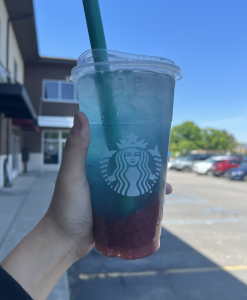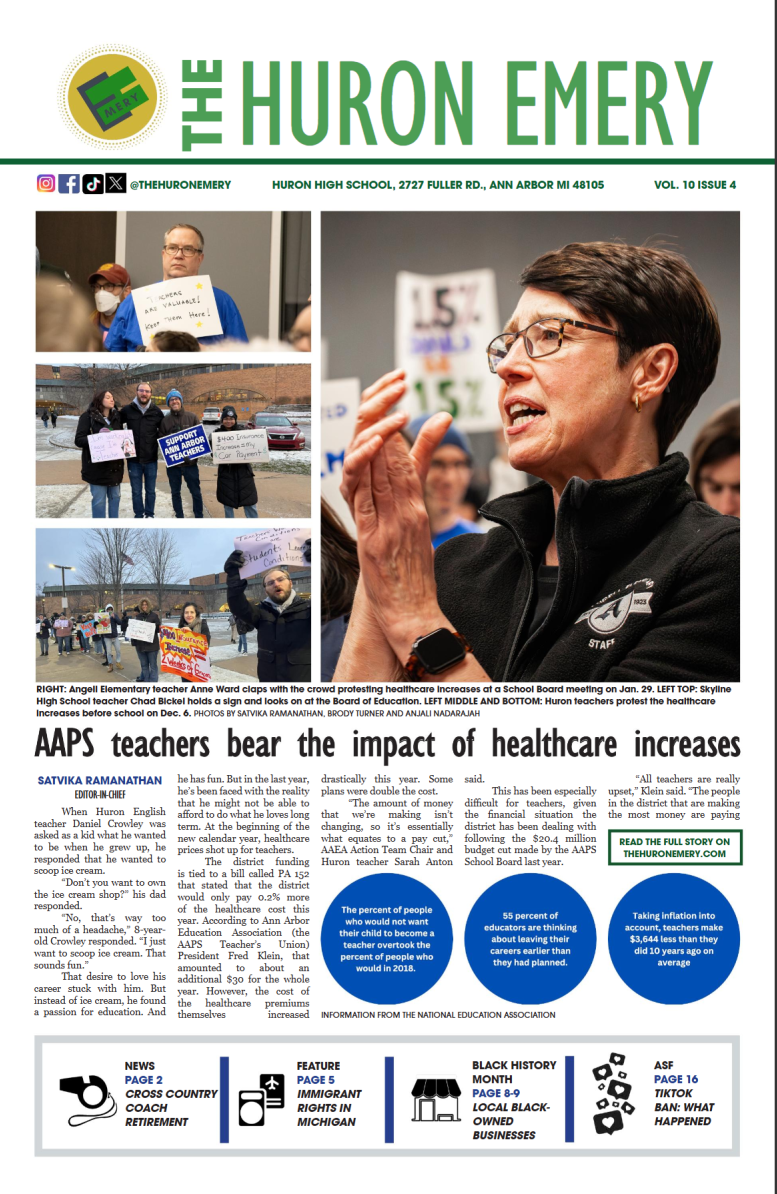The Shibutani siblings: inspiring the AAPI community
May 24, 2023
Huron alumni Maia and Alex Shibutani are more than just talented ice skaters of the AAPI community; they are active members of the ongoing fight for AAPI visibility and representation.
Recently, they published their children’s picture book “Amazing: Asian Americans and Pacific Islanders Who Inspire Us All.” The book features thirty-six inspiring members of the AAPI community. The low number of features allow each enough space for proper recognition in the book. Maia and Alex made sure to select both historical and contemporary figures from a wide range of backgrounds and professions.
“There are thirty-six figures highlighted [in Amazing]. We knew of twenty-two, and that’s why it was so exciting for us to do the research,” Maia said. “It is so important to get it right when it’s nonfiction. We’re telling real stories and this is often the first introduction that people have to these incredible people.”
Alex and Maia believe there is not enough AAPI representation, especially in children’s literature.
“Despite the accomplishments of the individuals [highlighted in the book], they are not celebrated enough, not visible enough,” Alex said. “We wanted to show the next generation of kids from around the world that anything is possible.”
A prominent reason why Alex and Maia created the book was because they did not have this representation – this culmination of people to look up to – when they were younger, but wish they did. There was especially a lack of AAPI men in ice dancing.
“While I had Kristi Yamaguchi and Michelle Kwan to look up to, [Alex] didn’t have that visibility,” Maia said. “When we became national champions, [Alex] was the first Asian American man to be national champion. Or when we were inducted into the hall of fame, same thing.”
Being Asian Americans was not the only thing that made the Shibutani siblings stand out in ice dancing. The intersectionality of their identities also impacted the experiences they had.
“Being Asian American [and] also being siblings factor[ed] into the types of music we could skate to and the types of stories and choreography that we could do,” Alex said. “Some would say those are restrictions or limitations, but I think they created opportunities for us to learn and be very aware of representation and visibility, and what that means and the pressures that are associated with it, but also the opportunities that exist for us to connect with people.”
The Shibutani siblings’ unique identity within their predominantly white sport raised challenges many people are not aware of. In addition, the people surrounding them did not fully understand what it meant to have an AAPI background.
“Being the only non-white team [to medal] deals with a lot of issues.” Alex said. “Sometimes we would voice our concerns [to] coaches, judges, [and] peers and it would be dismissed.”
The Shibutani siblings are helping to shape the futures of the younger generation of AAPI so that they will grow up feeling less isolated with more visibility of people with the same background as them.
“We’re so excited that this book is here so that the next generation can have that education, that awareness, and the empathy that comes just from learning,” Alex said. “If not you, then who?”











